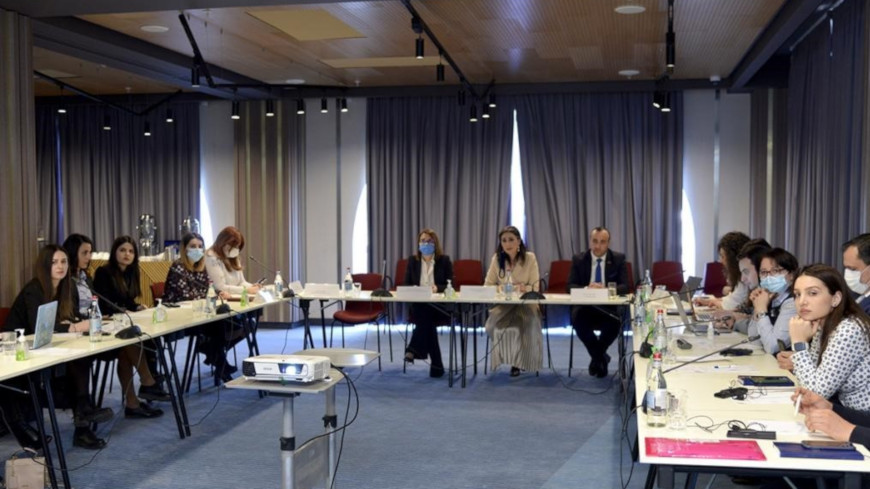The project on “Strengthening institutional capacities to fight and prevent corruption in Armenia” continues supporting the Corruption Prevention Commission in developing and improving its methodology for integrity checking of judicial nominees.
The workshop on “Integrity checking: Armenian experience, achievements and prospects for improvement”, organised through joint efforts of the Corruption Prevention Commission and the Project, provided the opportunity to learn lessons from the first round of practical implementation of integrity checking of judicial nominees by the Armenian Corruption Prevention Commission, and suggest improvements to the methodology used, based on the feedback from different national authorities and international experts.
The members of the Commission and representatives of the Ministry of Justice, the General Prosecutor's Office, the Supreme Judicial Council, the National Assembly, as well as representatives and experts of international organizations took part in the discussion – which took place in-person in Yerevan with international participants connected online.
The Chairperson of the Corruption Prevention Commission Haykuhi Harutyunyan presented the current integrity checking system for judicial nominees in Armenia (which is partly based on previous recommendations provided by the Project), the results of its implementation in 2020, and the practical challenges encountered in this process. International experts from different organisations provided feedback on the Armenian experience from the perspective of European and international standards and good practices. The other Armenian authorities present also shared their views on the importance of the Commission’s opinions on candidates’ integrity within their work and the role of this process in the improvement of the overall judicial system.
The importance of introducing an integrity checking system in Armenia, and the pioneering character of some of its features were highlighted in the workshop, and recommendations were made on further steps to ameliorate it for the following rounds. The Council of Europe will continue to support the Corruption Prevention Commission in refining and enhancing its methodology for the next phase of this exercise.
This activity was organised in the framework of the project “Strengthening institutional capacities to fight and prevent corruption in Armenia”, funded by the European Union and the Council of Europe, implemented by the Council of Europe in their Partnership for Good Governance II Programme.





